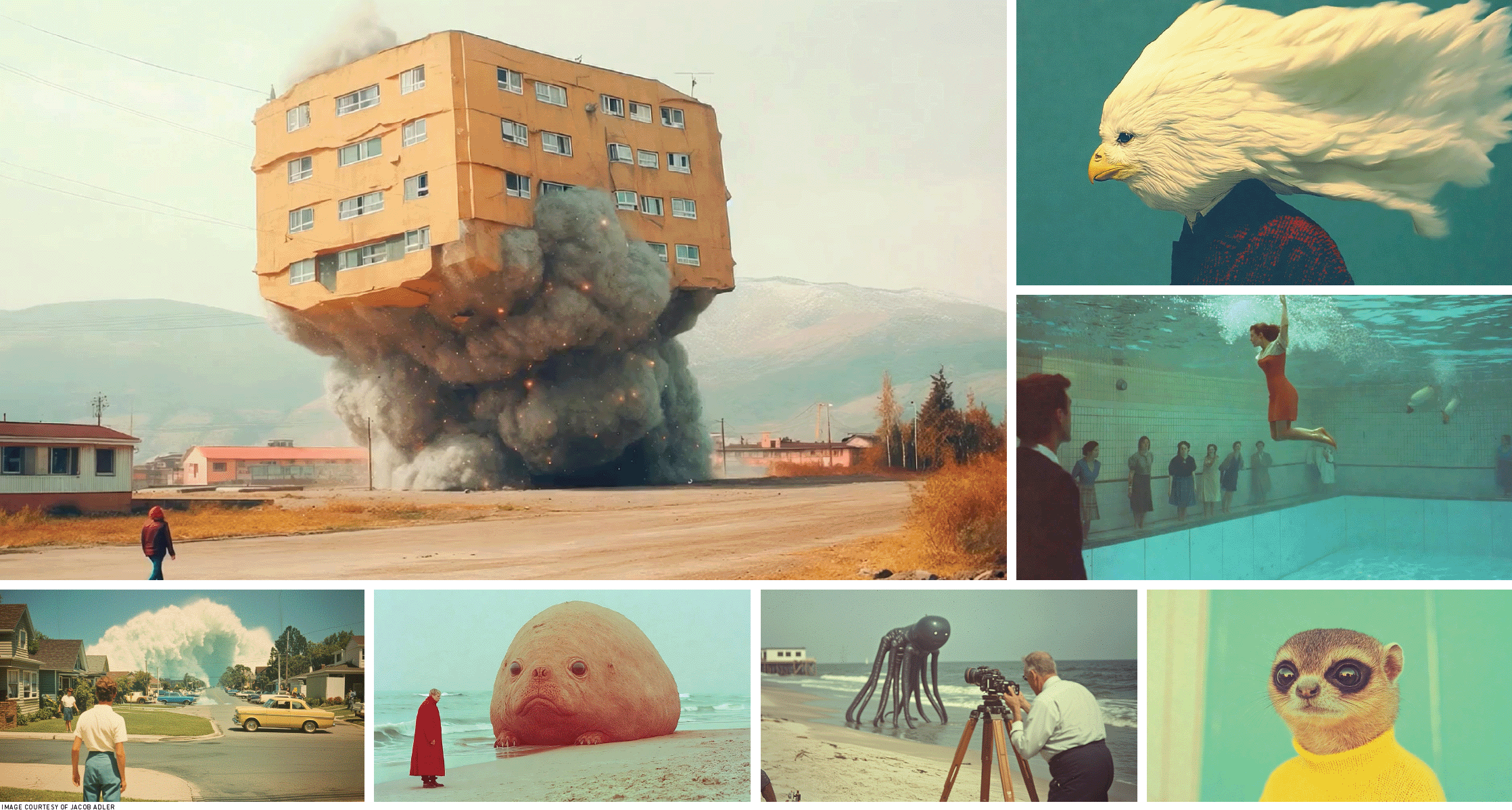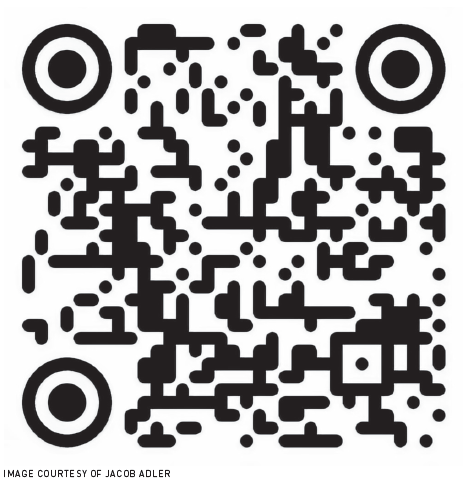Authors:
Renato Verdugo, Scott Minneman
Contributor: Jacob Adler
Curators: Renato Verdugo and Scott Minneman
 | Still frames from the film Total Pixel Space. |
In his 1941 short story "The Library of Babel" Jorge Luis Borges imagined a space containing every possible book. Its narrator describes the Library as total—"its shelves register all the possible combinations of the twenty-odd orthographical symbols (a number which, though extremely vast, is not infinite)." The inhabitants of the Library constantly seek meaning in a labyrinth of books that are mostly indecipherable gibberish of chance and combination.
Inspired by Borges, composer Jacob Adler's film Total Pixel Space explores this idea in the context of digital imagery. Using generative AI tools, Adler delves into the theoretical space where every visual permutation of colors exists, predetermined by the coordinates of its array of pixels.
In this thought exercise, the film's narrator acknowledges that "recognizable scenes, faces, and objects are extremely rare islands in a vast sea of noise." But unlike Borges's librarians who aimlessly seek combinations of letters that offer a glimpse of decipherable words and meaning, Adler builds a universe of images that simultaneously evoke familiarity and surrealism. In conversation with Interactions, Adler observed that "image generators open access to the space of all possible images, enabling our imagination to traverse it at a far greater speed."
Jacob Adler is a composer, pianist, music theory educator, and filmmaker. He specializes in the art and science of tuning systems and advanced rhythm techniques. His short film Total Pixel Space won the Grand Prix at the 2025 Runway AI Film Festival in New York.
Copyright 2025 held by owners/authors
The Digital Library is published by the Association for Computing Machinery. Copyright © 2025 ACM, Inc.









Post Comment
No Comments Found